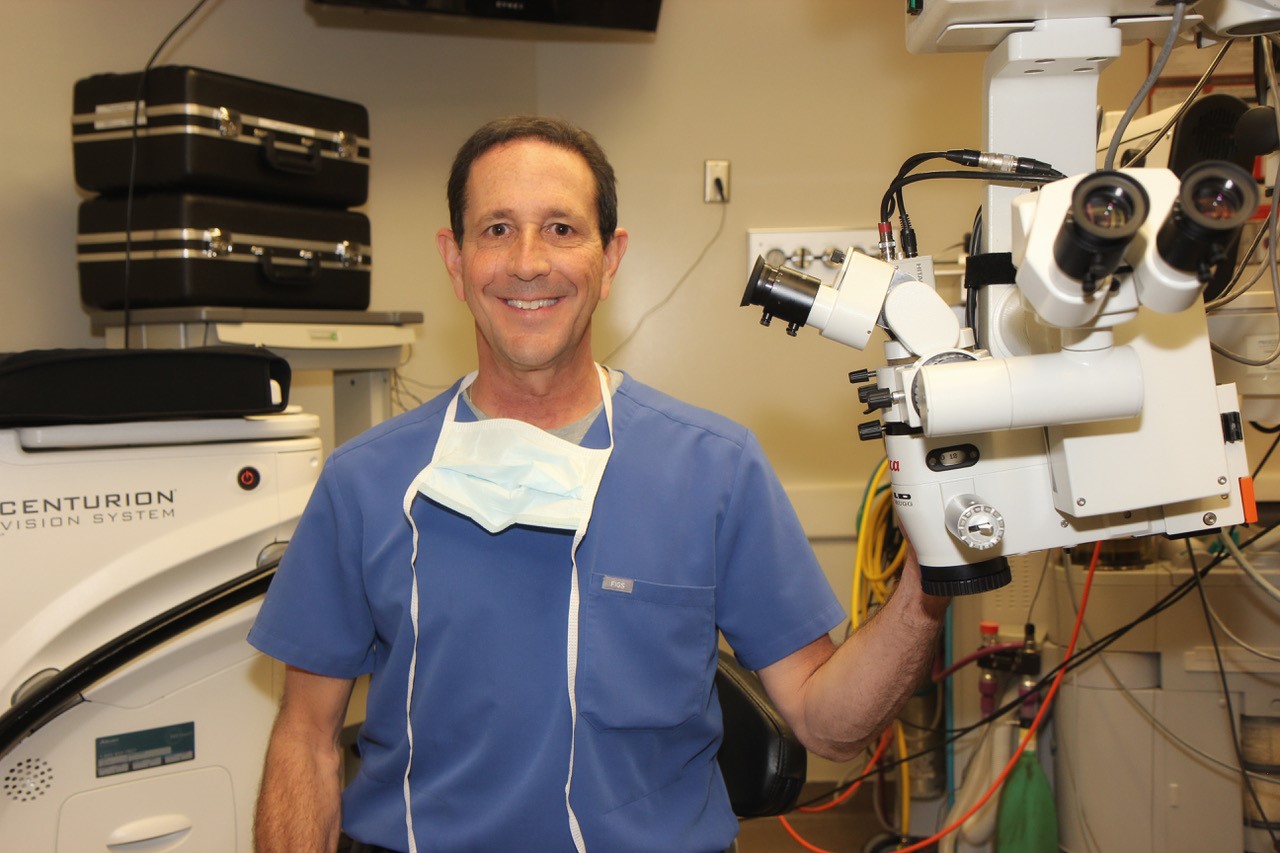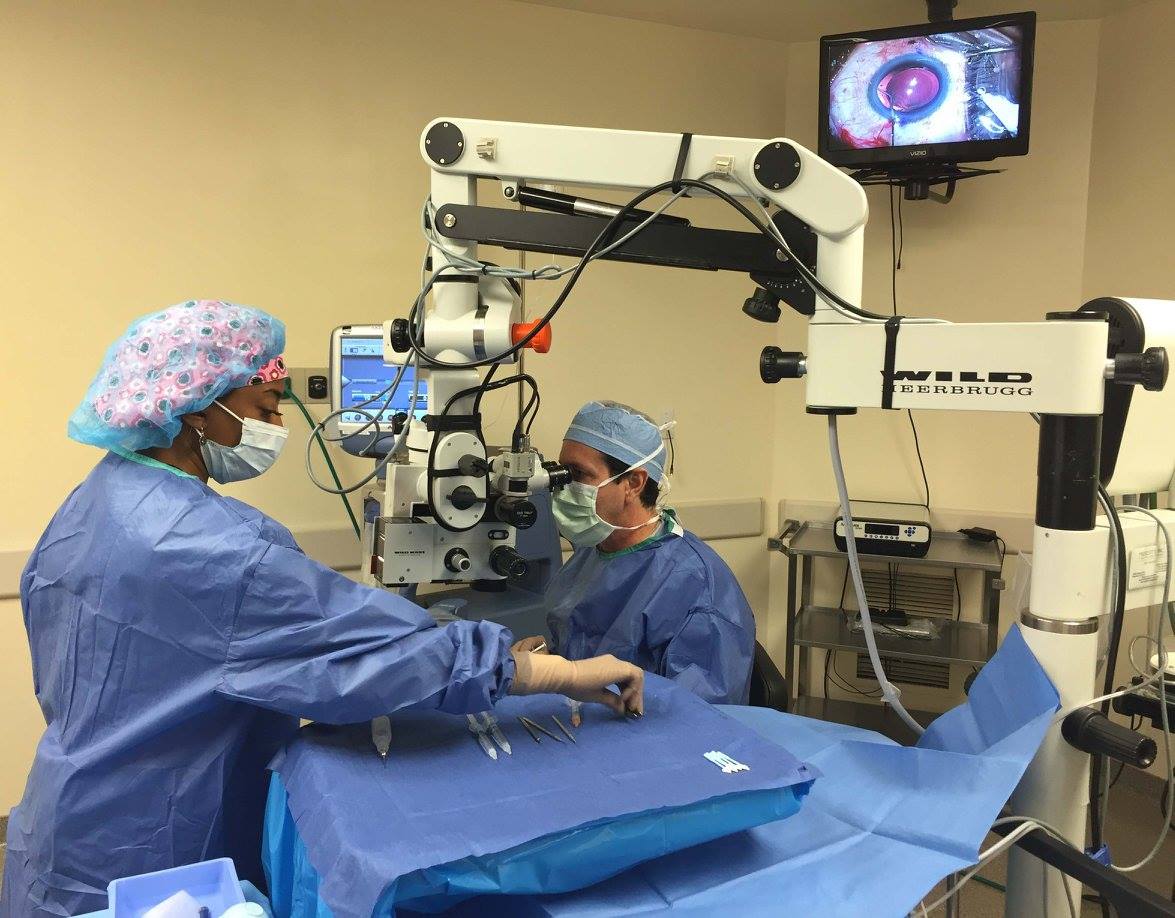
STEVE HAMILTON ’84
Chemical Engineering
Ophthalmologist, Corneal Surgeon at Eye Consultants of Atlanta
Why Auburn?
I came to Auburn for a lot of reasons. Of course, a big one was the excellent reputation of the College of Engineering. But I also loved the beautiful campus and the genuine people. It truly is an Auburn family.
How did you transition from engineering into medicine?
This is always been a tough question for me. I believe it was a God thing. I really had no mentors. I am the first physician ever in my family. As much as I loved engineering, during my third and fourth year at Auburn I just started feeling really out of place. I did not feel like I was following the right career path. Something got me thinking about medicine, and on a whim I applied to medical school, thinking that if I got accepted that it was meant to be. I thought as a ChE, I should probably be an anesthesiologist so I went in thinking that way. As a medical student I went to get an eye exam and was blessed to run into an enthusiastic resident who encouraged me to investigate ophthalmology. That one thing led to another and here I find myself in the most rewarding career that is a perfect fit for my personality and my abilities.
What’s an average day like? What happens?
A normal surgery day is usually a few LASIK cases, 6-7 cataract surgeries, 2-3 corneal transplant procedures and then one very complex anterior segment reconstructive surgery. The latter can take a few hours, so that will always be the last case. A normal clinic day is about 35-40 patients. I am a fellowship trained corneal sub-specialist, so much of my practice is consulting on cases referred from fellow ophthalmologists. We plan for an hour break from noon to 1 p.m., but we rarely get to stop for more than a few minutes. There are some quick, simpler routine patients and post surgical check ups, but then there are also new and complex patient challenges to solve. There are often a few daily emergencies as well, requiring immediate attention with an office procedure like gluing a corneal perforation or suturing a wound dehiscence.
What gives you the most professional satisfaction?
Using my gifts to bless others. It is a privilege to have a career where you can change lives for the better, and basically perform medical miracles. I am a LASIK and refractive cataract surgeon, so watching the recovery of 20/20 vision over a few hours never gets old. But my real passion is the complex reconstructive procedures that are my specialty. It is where art meets science — restoring function, vision and cosmetics in one long procedure. It is so satisfying to make these patients whole again. I am one of only a dozen surgeons in the U.S. with extensive experience in artificial iris implantation, so I see referrals from all over the Southeast for these types of cases.
What’s your biggest professional challenge?
Time management. I want to instill my confidence and hope in every patient and to give them the expertise, support, love and reassurance that they need. Allocating the limited time that is available each day for every patient is a difficult task, especially in a clinic that can be unpredictable due to referrals and emergencies. My policy is to never say no, regardless of the situation or ability to pay. A very talented support staff is a necessity. My work is very much a team approach, and I could not have the success that I do without amazing support.
How did studying chemical engineering at Auburn prepare you to be a successful eye surgeon?
It taught me how to think rationally and problem solve. My ability to analyze systems guides the way that I approach each case, the way that I visualize the problems to be solved and the way that I plan each step of my procedures. My understanding of spatial relationships, forces and vectors help me to create better surgical wounds and provide more precision in my surgeries, and hence better outcomes. Finally, my knowledge of optics helps me to understand how each element of the eye affects the optical system in order to provide the best possible vision outcome by considering each in my surgical plan.
